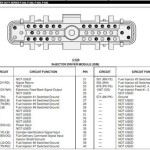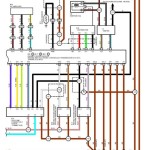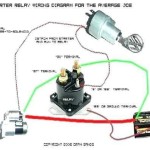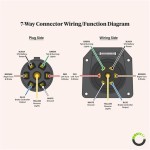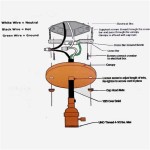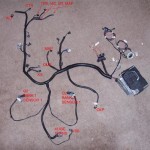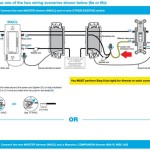Guitar wiring kits comprise essential electrical components used to assemble or modify electrical circuits within electric guitars and bass guitars. They typically include potentiometers for volume and tone control, a pickup selector switch, a bridge ground wire, capacitors, and other necessary parts.
Guitar wiring kits simplify the process of wiring or rewiring a guitar’s electronics, providing a structured approach for musicians, luthiers, and hobbyists. They ensure proper component compatibility and minimize the risk of incorrect wiring, ensuring optimal sound quality and functionality.
One prominent historical development in guitar wiring kits is the introduction of pre-soldered components, eliminating the need for manual soldering. This advancement significantly reduces installation time and complexity, making the wiring process more accessible to musicians and non-experts.
As we delve into the article, we will explore the various types of guitar wiring kits available, analyze their advantages and disadvantages, and provide practical tips for their installation. We will also discuss advanced wiring techniques and modifications that experienced users can leverage to customize their guitar’s electronics for enhanced performance and tonal versatility.
Guitar wiring kits play a crucial role in the assembly, modification, and maintenance of electric guitars and bass guitars. Understanding their key aspects is essential for musicians, luthiers, and hobbyists seeking to optimize the performance and functionality of their instruments.
- Components: Wiring kits typically include potentiometers, pickup selector switches, capacitors, resistors, and other electrical components essential for controlling volume, tone, and pickup configuration.
- Compatibility: Kits are designed to ensure component compatibility with specific guitar models or types, simplifying the wiring process and reducing the risk of incorrect connections.
- Customization: Wiring kits provide a foundation for customizing guitar electronics, allowing users to modify pickup configurations, add active electronics, or experiment with different wiring schemes.
- Quality: The quality of components and materials used in wiring kits can significantly impact the sound quality, durability, and reliability of the guitar’s electronics.
- Pre-soldered: Pre-soldered wiring kits eliminate the need for manual soldering, making the installation process more accessible and less time-consuming.
- Versatility: Wiring kits are available for a wide range of guitar models and styles, enabling musicians to upgrade or modify instruments from vintage classics to modern high-output machines.
- Cost-effectiveness: Wiring kits offer a cost-effective way to replace or upgrade guitar electronics compared to purchasing individual components and assembling them from scratch.
- Skill Level: Wiring kits cater to various skill levels, from beginner-friendly options to kits designed for experienced luthiers.
- Instructions: Most wiring kits include detailed instructions and diagrams, guiding users through the installation process step-by-step.
- Troubleshooting: Understanding the key aspects of wiring kits aids in troubleshooting and resolving common electrical issues that may arise in guitar electronics.
In conclusion, guitar wiring kits encompass a comprehensive set of aspects that influence the sound, functionality, and overall performance of electric guitars. By considering these aspects, musicians and luthiers can make informed decisions when selecting, installing, and customizing wiring kits, ensuring that their instruments deliver optimal playing experience and tonal excellence.
Components: Wiring kits typically include potentiometers, pickup selector switches, capacitors, resistors, and other electrical components essential for controlling volume, tone, and pickup configuration.
Guitar wiring kits are integral to the functionality of electric guitars and bass guitars, providing the necessary electrical components to control volume, tone, and pickup configuration. These kits typically include potentiometers, pickup selector switches, capacitors, resistors, and other essential parts, each playing a specific role in shaping the instrument’s sound and performance.
Potentiometers, also known as pots, are variable resistors that control the volume and tone of the guitar. They allow the player to adjust the output level and tonal characteristics, from bright and treble-heavy to warm and bass-heavy. Pickup selector switches enable the player to choose which pickup or combination of pickups is active, providing a range of tonal options from the bridge pickup’s bright and twangy sound to the neck pickup’s warmer and fuller tone.
Capacitors are used in tone circuits to filter out unwanted frequencies and shape the overall tonal response. They work in conjunction with potentiometers to create a variety of tonal effects, from subtle adjustments to drastic changes in the guitar’s sound. Resistors limit the flow of current in the circuit, affecting the overall gain and tone of the guitar. They are often used in combination with capacitors to create specific frequency responses and filter out unwanted noise.
Understanding the relationship between these components and their role in guitar wiring kits is essential for musicians and luthiers seeking to optimize the performance and functionality of their instruments. By carefully selecting and installing the appropriate components, guitarists can tailor their instrument’s sound to their playing style and musical preferences.
In summary, the components included in guitar wiring kits play a crucial role in determining the sound and functionality of electric guitars and bass guitars. Understanding their purpose and interconnections empowers musicians and luthiers to customize and maintain their instruments for optimal performance and tonal excellence.
Compatibility: Kits are designed to ensure component compatibility with specific guitar models or types, simplifying the wiring process and reducing the risk of incorrect connections.
Within the realm of guitar wiring kits, compatibility plays a pivotal role in ensuring the seamless integration and optimal performance of electrical components within electric guitars and bass guitars. Guitar wiring kits are meticulously designed to match the specific requirements of different guitar models and types, ensuring that each component fits precisely and functions harmoniously.
- Component Compatibility: Guitar wiring kits are curated to include components that are compatible with the specific make and model of the guitar. This ensures that the potentiometers, pickup selector switch, and other electrical components align seamlessly with the guitar’s body, pickup configuration, and electronics cavity, eliminating the need for modifications or adjustments.
- Wiring Diagrams: Most guitar wiring kits come with detailed wiring diagrams that provide step-by-step instructions for installing the components. These diagrams are tailored to the specific guitar model, ensuring that the wiring is done correctly and in accordance with the manufacturer’s specifications, minimizing the risk of incorrect connections and electrical faults.
- Pre-soldered Components: Pre-soldered guitar wiring kits offer a significant advantage, especially for beginners or those with limited soldering experience. These kits feature components that are pre-soldered, reducing the risk of cold solder joints, poor connections, and potential damage to the components or the guitar itself.
- Quality Assurance: Guitar wiring kits from reputable manufacturers undergo rigorous quality control processes to ensure that the components meet industry standards and are free from defects. This ensures the reliability and durability of the wiring, contributing to the overall performance and longevity of the guitar.
In conclusion, the compatibility aspect of guitar wiring kits is paramount for ensuring proper fit, ease of installation, and optimal performance. By carefully matching components to specific guitar models and providing clear wiring diagrams, guitar wiring kits empower musicians and luthiers to upgrade or repair their instruments with confidence, unlocking their full tonal potential.
Customization: Wiring kits provide a foundation for customizing guitar electronics, allowing users to modify pickup configurations, add active electronics, or experiment with different wiring schemes.
Within the realm of guitar wiring kits, customization stands out as a key aspect that empowers guitarists and luthiers to tailor their instruments to their unique tonal preferences and playing styles. By providing a versatile foundation, wiring kits open up a world of possibilities for modifying pickup configurations, incorporating active electronics, and experimenting with diverse wiring schemes.
- Pickup Configuration Modifications: Wiring kits enable guitarists to alter the arrangement and combination of pickups in their instruments. This allows for the exploration of different pickup combinations, such as adding a humbucker in the bridge position or installing a P90 pickup in the neck position, resulting in a wider sonic palette and tonal versatility.
- Active Electronics Integration: Wiring kits can accommodate the installation of active electronics, such as preamps and EQ circuits, which provide enhanced tonal shaping capabilities. Active electronics offer greater control over the guitar’s output level, EQ response, and overall tonal character, allowing guitarists to fine-tune their sound with precision.
- Wiring Scheme Experimentation: Wiring kits provide a platform for experimenting with various wiring schemes, such as coil splitting, series/parallel switching, and pickup phase reversal. These wiring modifications can unlock hidden tonal possibilities, enabling guitarists to explore unique and unconventional sounds that may not be readily available on stock instruments.
- Component Selection and Upgrading: Wiring kits offer the flexibility to choose and upgrade individual components, such as potentiometers, capacitors, and resistors. By selecting high-quality components and matching them to the desired tonal goals, guitarists can optimize the performance and responsiveness of their guitar’s electronics.
In conclusion, the customization aspect of guitar wiring kits empowers guitarists and luthiers to break free from the limitations of stock electronics and embark on a journey of tonal exploration and sonic experimentation. By modifying pickup configurations, integrating active electronics, and experimenting with different wiring schemes, guitarists can unlock the full potential of their instruments and craft a sound that is uniquely their own.
Quality: The quality of components and materials used in wiring kits can significantly impact the sound quality, durability, and reliability of the guitar’s electronics.
Within the realm of guitar wiring kits, quality stands as a pivotal factor that profoundly influences the overall performance of electric guitars and bass guitars. The quality of components and materials used in these kits directly affects the sound quality, durability, and reliability of the guitar’s electronics, shaping the sonic characteristics and longevity of the instrument.
Impact on Sound Quality: High-quality wiring kits utilize superior components that deliver exceptional sound quality. Precision-crafted potentiometers provide smooth and consistent volume and tone control, while premium capacitors and resistors ensure accurate frequency response and minimize unwanted noise. These components work in harmony to preserve the natural tonal character of the guitar’s pickups, allowing the player’s unique sound to shine through.
Durability and Reliability: Durable wiring kits are built to withstand the rigors of regular playing and transportation. Robust potentiometers and sturdy pickup selector switches can endure countless adjustments and strumming, while high-quality solder joints and shielded wiring minimize signal loss and prevent intermittent connections. These factors contribute to the long-term reliability of the guitar’s electronics, ensuring years of trouble-free performance.
Practical Applications: Recognizing the importance of quality in guitar wiring kits empowers guitarists and luthiers to make informed decisions when selecting and installing these kits. By opting for high-quality components, they can enhance the sound, durability, and reliability of their instruments, maximizing their playing experience and ensuring that their guitars perform optimally for years to come.
In conclusion, the quality of components and materials used in guitar wiring kits plays a crucial role in determining the sound quality, durability, and reliability of electric guitars and bass guitars. Understanding the cause-and-effect relationship between component quality and instrument performance enables guitarists and luthiers to select and install wiring kits that meet their specific needs and musical aspirations.
Pre-soldered: Pre-soldered wiring kits eliminate the need for manual soldering, making the installation process more accessible and less time-consuming.
Within the realm of guitar wiring kits, the advent of pre-soldered components has revolutionized the installation process, making it more accessible and less time-consuming, particularly for beginners and those with limited soldering experience. Pre-soldered wiring kits offer a multitude of advantages, empowering guitarists and luthiers to upgrade or repair their instruments with greater ease and efficiency.
- Simplified Installation: Pre-soldered wiring kits eliminate the need for manual soldering, which can be a daunting task for those unfamiliar with the technique. The components come pre-soldered, ensuring that the connections are secure and reliable, minimizing the risk of cold solder joints or incorrect wiring.
- Reduced Installation Time: The pre-soldered nature of these kits significantly reduces the installation time compared to traditional wiring kits. This is particularly beneficial for guitarists who may not have the time or expertise to solder components themselves, allowing them to complete the installation process quickly and efficiently.
- Cost-Effectiveness: Pre-soldered wiring kits can be more cost-effective in the long run, especially for those who may not have the necessary soldering equipment or experience. By eliminating the need for additional tools and materials, these kits can save guitarists money while ensuring a professional-quality installation.
- Improved Reliability: Pre-soldered components are typically soldered using high-quality solder and techniques, resulting in strong and reliable connections. This reduces the likelihood of intermittent connections or signal loss due to poor soldering, enhancing the overall reliability of the guitar’s electronics.
In conclusion, the pre-soldered aspect of guitar wiring kits offers a range of benefits, including simplified installation, reduced installation time, cost-effectiveness, and improved reliability. These advantages make pre-soldered wiring kits an ideal choice for guitarists and luthiers of all skill levels, enabling them to upgrade or repair their instruments with greater ease and efficiency, ultimately enhancing their playing experience and unlocking the full potential of their guitars.
Versatility: Wiring kits are available for a wide range of guitar models and styles, enabling musicians to upgrade or modify instruments from vintage classics to modern high-output machines.
The versatility of guitar wiring kits lies in their compatibility with a wide range of guitar models and styles. This allows musicians to customize and enhance their instruments, regardless of their make, model, or era.
For instance, a guitarist seeking to upgrade the electronics on a vintage Fender Stratocaster can find a wiring kit specifically designed for that model. This ensures that the kit includes all the necessary components, such as potentiometers, capacitors, and a pickup selector switch, that are compatible with the guitar’s body, pickup configuration, and electronics cavity.
Similarly, a guitarist with a modern high-output guitar, such as a Gibson Les Paul Custom, can find a wiring kit that accommodates the guitar’s active electronics and multiple pickup configurations. These kits often include additional components, such as preamps and EQ circuits, that allow for a greater degree of tonal shaping and control.
The versatility of guitar wiring kits empowers musicians to experiment with different pickup combinations, wiring schemes, and tonal modifications. This enables them to personalize their instruments and create unique sounds that match their musical style and preferences.
In summary, the versatility of guitar wiring kits is a critical component of their importance. It allows musicians to upgrade, modify, and customize their guitars, regardless of their model or style, unlocking a world of tonal possibilities and enhancing their playing experience.
Cost-effectiveness: Wiring kits offer a cost-effective way to replace or upgrade guitar electronics compared to purchasing individual components and assembling them from scratch.
Guitar wiring kits offer a cost-effective solution for guitarists and luthiers looking to replace or upgrade their guitar’s electronics. The primary reason for this cost-effectiveness stems from the fact that wiring kits typically include all the necessary components needed for a complete installation, eliminating the need to purchase individual components separately.
Purchasing individual components can be a time-consuming and expensive process, especially for those unfamiliar with the specific components required for their guitar model. Wiring kits, on the other hand, provide a comprehensive solution that includes potentiometers, capacitors, resistors, and other essential components, ensuring compatibility and reducing the risk of purchasing incorrect or unnecessary parts.
Furthermore, wiring kits often come with pre-soldered connections, which further reduces the time and effort required for installation. This is particularly beneficial for beginners or those without soldering experience, as it eliminates the need for intricate soldering work.
A real-life example of the cost-effectiveness of guitar wiring kits can be seen in the case of a guitarist who needs to replace the electronics on a Fender Stratocaster. Purchasing all the necessary components individually could cost upwards of $50, while a pre-assembled wiring kit specifically designed for the Stratocaster can be purchased for around $25. This significant cost saving makes wiring kits an attractive option for guitarists on a budget.
In conclusion, the cost-effectiveness of guitar wiring kits lies in their comprehensive design, which includes all the necessary components and often features pre-soldered connections. This reduces the time, effort, and cost associated with purchasing individual components and assembling them from scratch, making wiring kits an ideal choice for guitarists and luthiers looking to upgrade or repair their instruments.
Skill Level: Wiring kits cater to various skill levels, from beginner-friendly options to kits designed for experienced luthiers.
The skill level required for installing guitar wiring kits varies depending on the complexity of the kit and the individual’s experience. Beginner-friendly kits are designed for those with little to no soldering experience, while more advanced kits may require specialized skills and tools. Understanding the skill level required for a particular kit is crucial to ensure a successful installation.
For beginners, pre-soldered wiring kits are a great option. These kits eliminate the need for soldering, making the installation process much simpler. However, it is important to note that even pre-soldered kits require some basic assembly skills, such as connecting the components to the guitar’s body and soldering the ground wire.
For those with more experience, wiring kits that require soldering offer greater flexibility and customization options. These kits allow users to choose the specific components they want and fine-tune the wiring to their liking. However, soldering requires specialized skills and tools, and it is important to have a good understanding of guitar electronics before attempting to install a soldering-required kit.
One real-life example of the importance of skill level in guitar wiring kits is the installation of active electronics. Active electronics require a higher level of skill to install, as they involve soldering multiple components and understanding the circuit’s operation. A beginner may find it challenging to install active electronics without proper guidance or experience.
In conclusion, the skill level required for guitar wiring kits plays a significant role in the installation process. Beginner-friendly kits are suitable for those with limited experience, while more advanced kits offer greater customization options for experienced luthiers. Understanding the skill level required for a particular kit is essential to ensure a successful installation and enhance the overall performance and sound of the guitar.
Instructions: Most wiring kits include detailed instructions and diagrams, guiding users through the installation process step-by-step.
Instructions play a critical role in the successful installation of guitar wiring kits. Detailed instructions and diagrams provide a step-by-step guide for users, enabling them to navigate the wiring process effectively. Without clear instructions, even experienced individuals may encounter difficulties, potentially leading to incorrect wiring and diminished performance of the guitar.
Real-life examples underscore the importance of instructions in guitar wiring kits. A common challenge faced by beginners is deciphering complex wiring diagrams and understanding the proper sequence of connections. Comprehensive instructions break down these diagrams into manageable steps, making the installation process accessible to users of all skill levels.
Beyond assisting in the installation, instructions also serve as a valuable resource for troubleshooting and maintenance. By referring to the instructions, users can identify potential issues and make adjustments to optimize the performance of their guitar. This understanding empowers guitarists and luthiers to maintain their instruments in top condition, ensuring longevity and optimal sound quality.
In summary, instructions are a critical component of guitar wiring kits, providing a clear and structured guide for installation and maintenance. Their importance lies in empowering users to navigate the wiring process confidently, reducing the risk of errors, and enabling them to maximize the performance and longevity of their guitars.
Troubleshooting: Understanding the key aspects of wiring kits aids in troubleshooting and resolving common electrical issues that may arise in guitar electronics.
Comprehending the intricacies of guitar wiring kits plays a pivotal role in troubleshooting and resolving common electrical issues that may surface in guitar electronics. By equipping oneself with a thorough understanding of the components, their interconnections, and the principles of guitar electronics, individuals can effectively diagnose and address these issues, ensuring optimal performance and tonal quality.
Real-life examples abound, showcasing the practical significance of this understanding. A loose connection in the wiring harness can lead to intermittent crackling or loss of signal. By tracing the wiring diagram and checking the solder joints, the issue can be quickly identified and rectified. Similarly, a faulty potentiometer might cause scratchy sounds or volume imbalances. Replacing the potentiometer resolves the problem, restoring the guitar’s smooth and responsive control.
The practical applications of this understanding extend beyond basic troubleshooting. By delving into the nuances of wiring kits, guitarists and luthiers can customize their instruments to achieve specific tonal goals. For instance, modifying the pickup configuration or installing active electronics requires a thorough understanding of the wiring scheme and the interaction between components. Armed with this knowledge, individuals can tailor their guitars to suit their unique playing styles and musical preferences.
In summary, the connection between troubleshooting and guitar wiring kits is inseparable. Understanding the key aspects of wiring kits empowers individuals to diagnose and resolve electrical issues effectively, optimize guitar performance, and embark on creative customizations. It empowers guitarists and luthiers to maintain and enhance their instruments, unlocking their full sonic potential.










Related Posts

